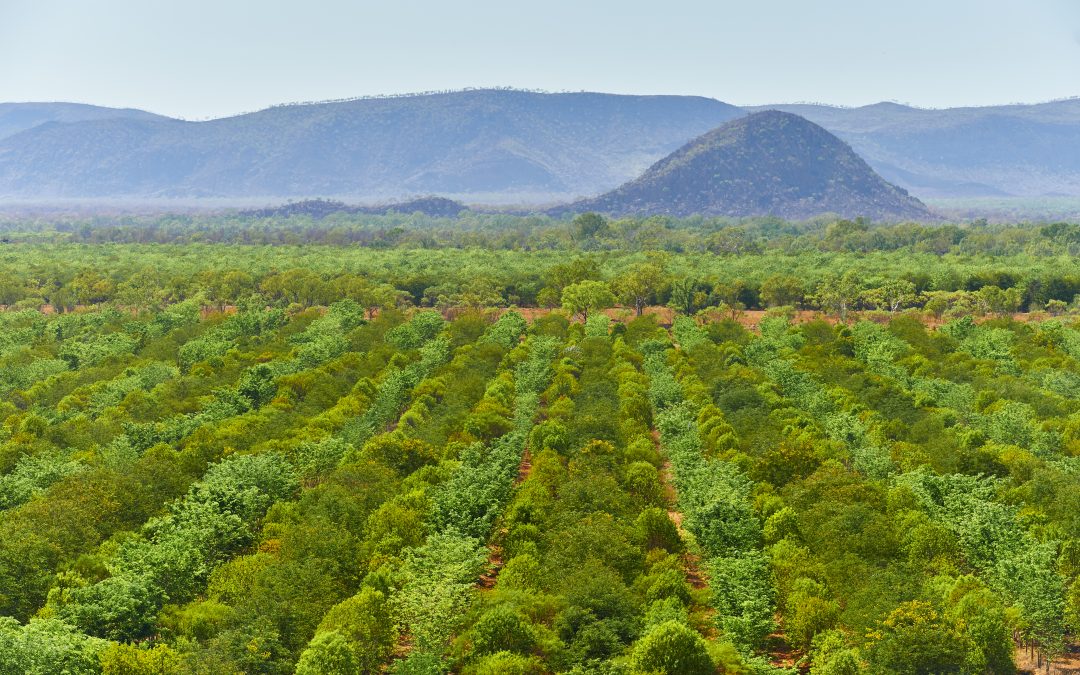Sandalwood host plants gain additional use: JC Sandalwood forest manager tests process for long-term binding of CO2 in biochar.
The hemi parasite sandalwood requires host plants to grow, from which it draws nutrients that are vital for its survival. Therefore, different plants accompany the sandalwood trees in the mixed forests of JC Sandalwood in their different growth phases.
To ensure that the discarded host plants are recycled in an environmentally friendly and sustainable way, the Australian management partner Quintis has initiated a fascinating test run on site: Amidst the forests in Kununurra and Kingston Rest is an area where a milestone in climate protection could be created: The production of biochar. This is a carbon-rich material produced by slowly “baking” the former host trees and biomass waste from the mixed forests in a pyrolysis furnace.
“It [Biochar] significantly reduces our carbon footprint,” says Dr. Precila Gonzales, the regional research forester in charge of the project. Recent studies indicate that biochar production extends the latency of the carbon cycle by hundreds, if not thousands, of years, thus reducing greenhouse gas emissions.
Significant carbon capture and storage
In contrast to the combustion or rotting of biomass, the production of biochar binds the resulting CO2 within the biochar itself – thus removing it from the atmosphere. The production of biochar therefore significantly contributes to carbon sequestration and storage. These are urgently needed for climate protection. Biochar could thereby make a significant contribution to mitigating climate change: a leading global expert on biochar has calculated that 29 billion metric tons of CO2 could be sequestered by planting biochar on 10% of the world’s arable land.
Once the biochar is produced, it is added to the soil. “It’s kind of a cycle. We don’t waste the carbon – it goes back into our ecosystem,” Dr. Gonzales explains. “It also benefits our plantings because it improves soil structure and increases productivity.”
A methodology proven over thousands of years
In fact, vegetable carbon has been used as a soil conditioner for more than 2,500 years. The charcoal often acted as a carrier for nutrients and microorganisms, which additionally increase the soil quality.
Scientifically proven benefits include groundwater protection through the binding of toxic substances to the biochar; enrichment of bacteria that benefit plant nutrient conversion; and improved soil water holding capacity.
Making sustainability a reality
Biochar manufacturing joins JC Sandalwood’s diverse sustainability list. After all, JC Sandalwood
- saves the endangered species sandalwood by reforesting a mixed forest.
- creates biodiversity in the course of the afforestation by improving the soil quality and raising the groundwater level (settlement of about 100 bird species).
- enables the production of unique medicinal products through a traceable and sustainable source of sandalwood of the highest quality (Santaum album).
- represents exemplary treatment of water resources, the indigenous population and the employees.

